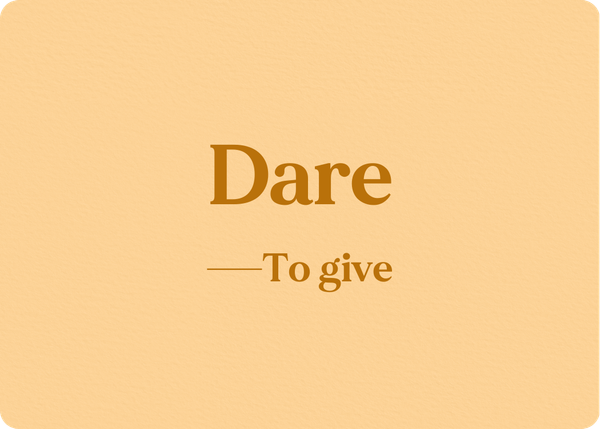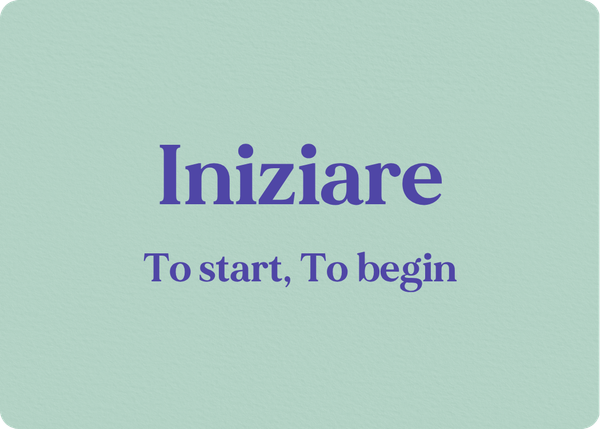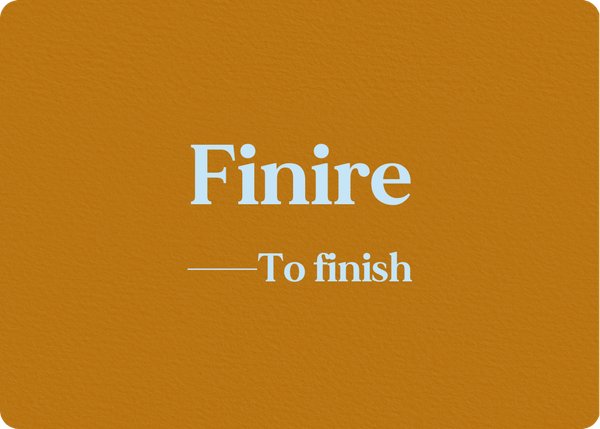What is Dare?
Dare is one of the most irregular and essential Italian verbs meaning "to give", "to offer", "to provide", or "to grant". It belongs to the first conjugation (-ARE verbs) but is highly irregular in many tenses. This verb is useful for expressing giving objects, emotions, and various actions.
Key Features of Dare:
- Type: Irregular first conjugation verb (-ARE)
- Meaning: To give, to offer, to provide, to grant
- Irregularities: Present tense (do, etc.), imperfect (davo), simple past (diedi, etc.), future (darò), present subjunctive (dia), imperfect subjunctive (dessi, etc.), conditional (darei), imperative (da'/dai, etc.)
- Auxiliary verb: Uses "avere" (to have) for conjugation in compound tenses
- Past participle: Dato
Indicativo – Indicative Mood
Presente (Present Tense)
| Person | Conjugation |
|---|---|
| io | do |
| tu | dai |
| lui/lei | dà |
| noi | diamo |
| voi | date |
| loro | danno |
Example:
Margherita dà sempre degli ottimi consigli.
Margherita always gives excellent advice.
Passato Prossimo (Present Perfect)
| Person | Conjugation |
|---|---|
| io | ho dato |
| tu | hai dato |
| lui/lei | ha dato |
| noi | abbiamo dato |
| voi | avete dato |
| loro | hanno dato |
Example:
Hai dato il regalo a tua sorella?
Did you give the gift to your sister?
Imperfetto (Imperfect)
| Person | Conjugation |
|---|---|
| io | davo |
| tu | davi |
| lui/lei | dava |
| noi | davamo |
| voi | davate |
| loro | davano |
Example:
Ai tempi del liceo, Marta dava sempre i suoi appunti ai compagni di classe.
In high school days, Marta always gave her notes to her classmates.
Trapassato Prossimo (Past Perfect)
| Person | Conjugation |
|---|---|
| io | avevo dato |
| tu | avevi dato |
| lui/lei | aveva dato |
| noi | avevamo dato |
| voi | avevate dato |
| loro | avevano dato |
Example:
Mi sono reso conto che avevo dato fiducia alla persona sbagliata.
I realized I had trusted the wrong person.
Passato Remoto (Simple Past)
| Person | Conjugation |
|---|---|
| io | diedi/detti |
| tu | desti |
| lui/lei | diede/dette |
| noi | demmo |
| voi | deste |
| loro | diedero/dettero |
Example:
In quel momento, deste prova di grande coraggio.
In that moment, you showed great courage.
Trapassato Remoto (Past Anterior)
| Person | Conjugation |
|---|---|
| io | ebbi dato |
| tu | avesti dato |
| lui/lei | ebbe dato |
| noi | avemmo dato |
| voi | aveste dato |
| loro | ebbero dato |
Example:
Dopo che ebbe dato la sentenza, il giudice si ritirò.
After he had delivered the sentence, the judge withdrew.
Futuro Semplice (Simple Future)
| Person | Conjugation |
|---|---|
| io | darò |
| tu | darai |
| lui/lei | darà |
| noi | daremo |
| voi | darete |
| loro | daranno |
Example:
Domani darò una mano a Lidia con i compiti.
Tomorrow I will give Lidia a hand with her homework.
Futuro Anteriore (Future Perfect)
| Person | Conjugation |
|---|---|
| io | avrò dato |
| tu | avrai dato |
| lui/lei | avrà dato |
| noi | avremo dato |
| voi | avrete dato |
| loro | avranno dato |
Example:
Immagino che avrai dato la colpa a qualcun altro.
I guess you must have blamed someone else.
Congiuntivo – Subjunctive Mood
Presente (Present Subjunctive)
| Person | Conjugation |
|---|---|
| che io | dia |
| che tu | dia |
| che lui/lei | dia |
| che noi | diamo |
| che voi | diate |
| che loro | diano |
Example:
È importante che voi diate il buon esempio.
It's important that you give a good example.
Passato (Past Subjunctive)
| Person | Conjugation |
|---|---|
| che io | abbia dato |
| che tu | abbia dato |
| che lui/lei | abbia dato |
| che noi | abbiamo dato |
| che voi | abbiate dato |
| che loro | abbiano dato |
Example:
È strano che lui non ti abbia dato nessuna spiegazione.
It's strange that he didn't give you any explanation.
Imperfetto (Imperfect Subjunctive)
| Person | Conjugation |
|---|---|
| che io | dessi |
| che tu | dessi |
| che lui/lei | desse |
| che noi | dessimo |
| che voi | deste |
| che loro | dessero |
Example:
Non credevo che lui desse tanta importanza a quelle parole.
I didn't think he gave so much importance to those words.
Trapassato (Past Perfect Subjunctive)
| Person | Conjugation |
|---|---|
| che io | avessi dato |
| che tu | avessi dato |
| che lui/lei | avesse dato |
| che noi | avessimo dato |
| che voi | aveste dato |
| che loro | avessero dato |
Example:
Se tu mi avessi dato una mano, avrei finito prima.
If you had given me a hand, I would have finished earlier.
Condizionale – Conditional Mood
Presente (Present Conditional)
| Person | Conjugation |
|---|---|
| io | darei |
| tu | daresti |
| lui/lei | darebbe |
| noi | daremmo |
| voi | dareste |
| loro | darebbero |
Example:
Darei qualsiasi cosa per rivederla.
I would give anything to see her again.
Passato (Past Conditional)
| Person | Conjugation |
|---|---|
| io | avrei dato |
| tu | avresti dato |
| lui/lei | avrebbe dato |
| noi | avremmo dato |
| voi | avreste dato |
| loro | avrebbero dato |
Example:
Avrei dato di più se avessi potuto!
I would have given more if I could have!
Imperativo (Imperative)
| Person | Conjugation |
|---|---|
| (tu) | da'/dai |
| (lui/lei) | dia |
| (noi) | diamo |
| (voi) | date |
| (loro) | diano |
Example:
Da’ retta ai tuoi genitori.
Listen to your parents.
Indefinite Moods
Infinito (Infinitive)
- Presente (Present): dare (to give)
- Passato (Past): avere dato (to have given)
Examples:
Bisogna dare il giusto valore alle piccole cose.
One must give proper value to small things.
Sono felice di aver(e) dato il mio contributo.
I'm happy to have given my contribution.
Participio (Participle)
- Passato (Past): dato (given)
Examples:
I soldi dati in beneficenza aiuteranno molte persone.
The money given to charity will help many people.
Gerundio (Gerund)
- Presente (Present): dando (giving)
- Passato (Past): avendo dato (having given)
Examples:
Lei cercava di aiutare tutti, dando consigli sinceri.
She tried to help everyone, giving sincere advice.
Avendo dato tutto per questo progetto, spero nel successo.
Having given everything for this project, I hope for success.
The verb Dare at a glance: Key tenses you need
| Present | Present Perfect | Imperfect | Present Subjunctive | Imperfect Subjunctive | Present Conditional |
|---|---|---|---|---|---|
| io do | io ho dato | io davo | che io dia | che io dessi | io darei |
| tu dai | tu hai dato | tu davi | che tu dia | che tu dessi | tu daresti |
| lui/lei dà | lui/lei ha dato | lui/lei dava | che lui/lei dia | che lui/lei desse | lui/lei darebbe |
| noi diamo | noi abbiamo dato | noi davamo | che noi diamo | che noi dessimo | noi daremmo |
| voi date | voi avete dato | voi davate | che voi diate | che voi deste | voi dareste |
| loro danno | loro hanno dato | loro davano | che loro diano | che loro dessero | loro darebbero |
Conclusion
Mastering the conjugation of "dare" is absolutely essential for speaking Italian, as it's one of the most frequently used verbs in the language. This highly irregular verb requires memorization of its unique forms, especially in the present tense and the irregular stems in various tenses.
Remember the key points:
- Uses "avere" as auxiliary verb in compound tenses
- Highly irregular in present tense and other key tenses
- Past participle is "dato"
- Note the accent on "dà" (third person singular) to distinguish from "da" (preposition)
- Essential for expressing giving, providing, and many idiomatic expressions
Keep practicing with real sentences and you'll master this Italian verb for expressing all giving-related activities!





